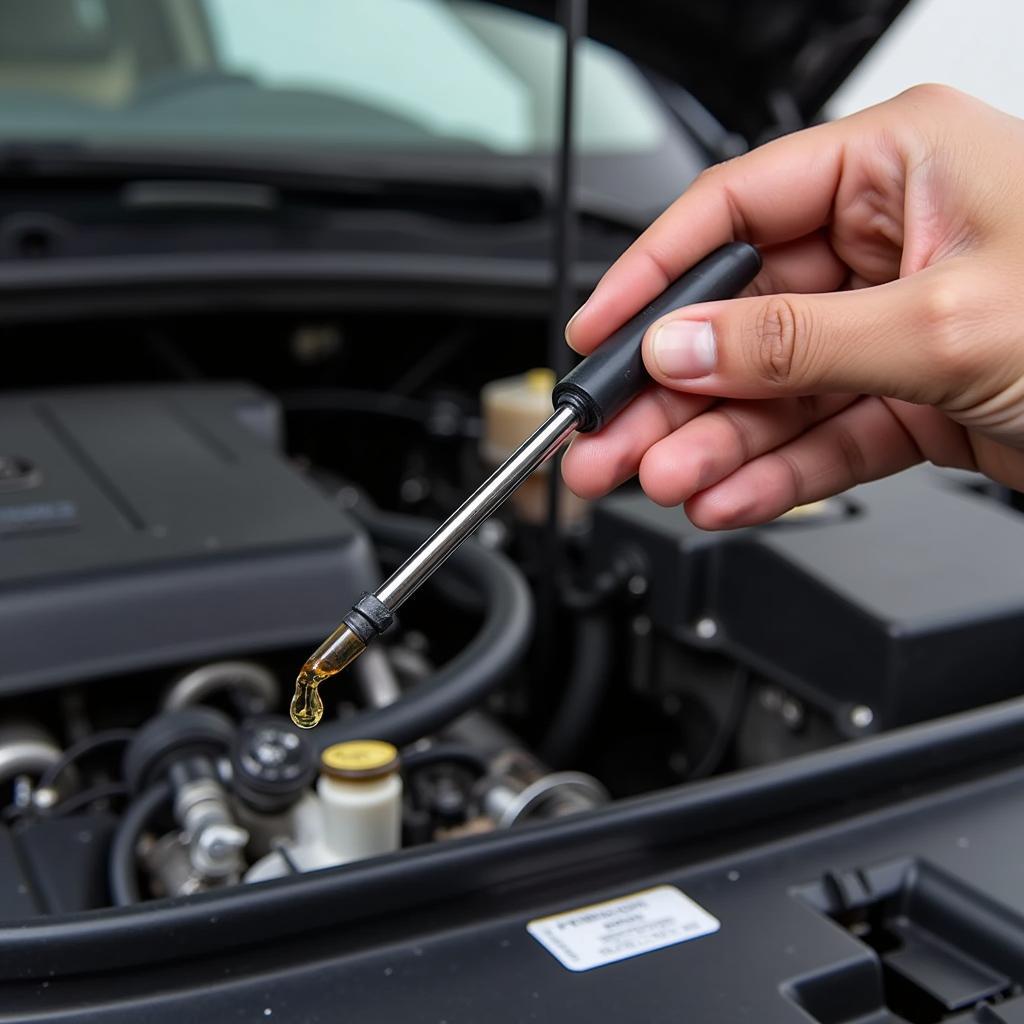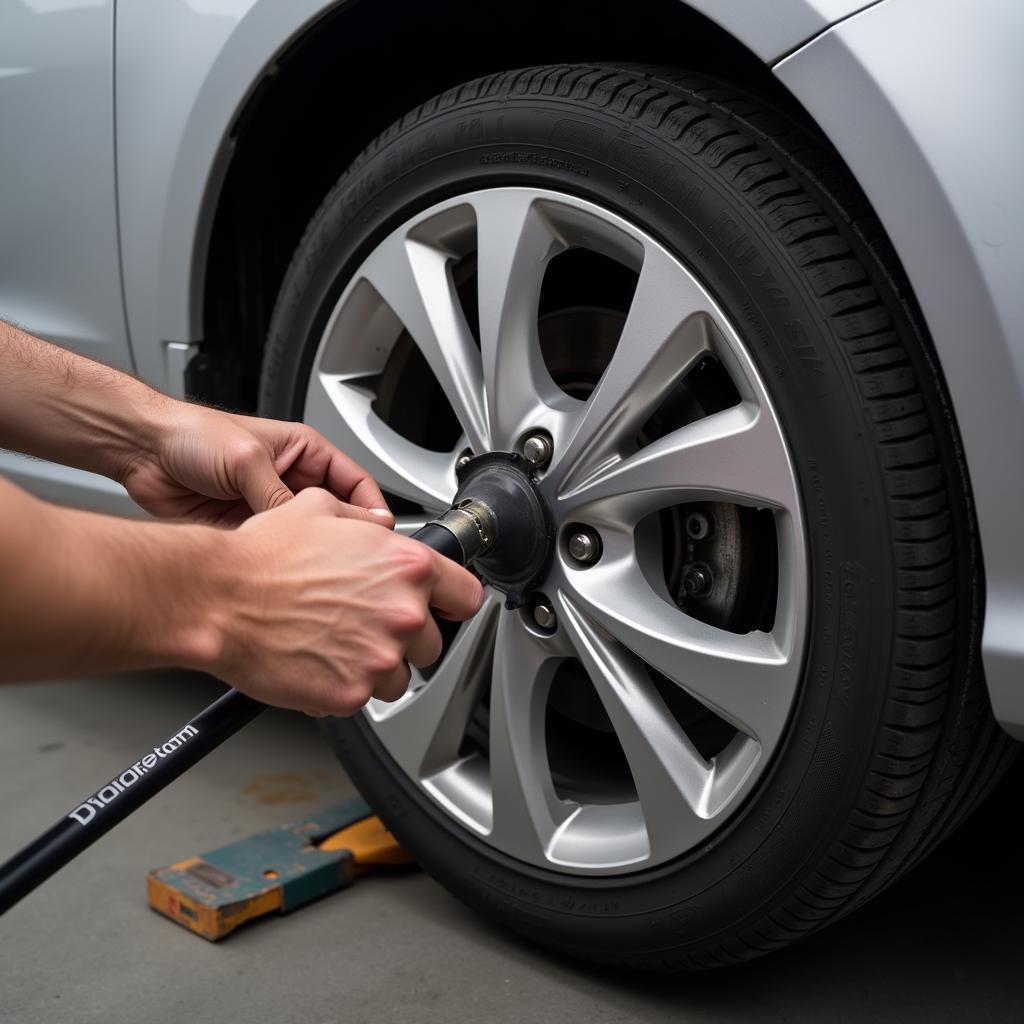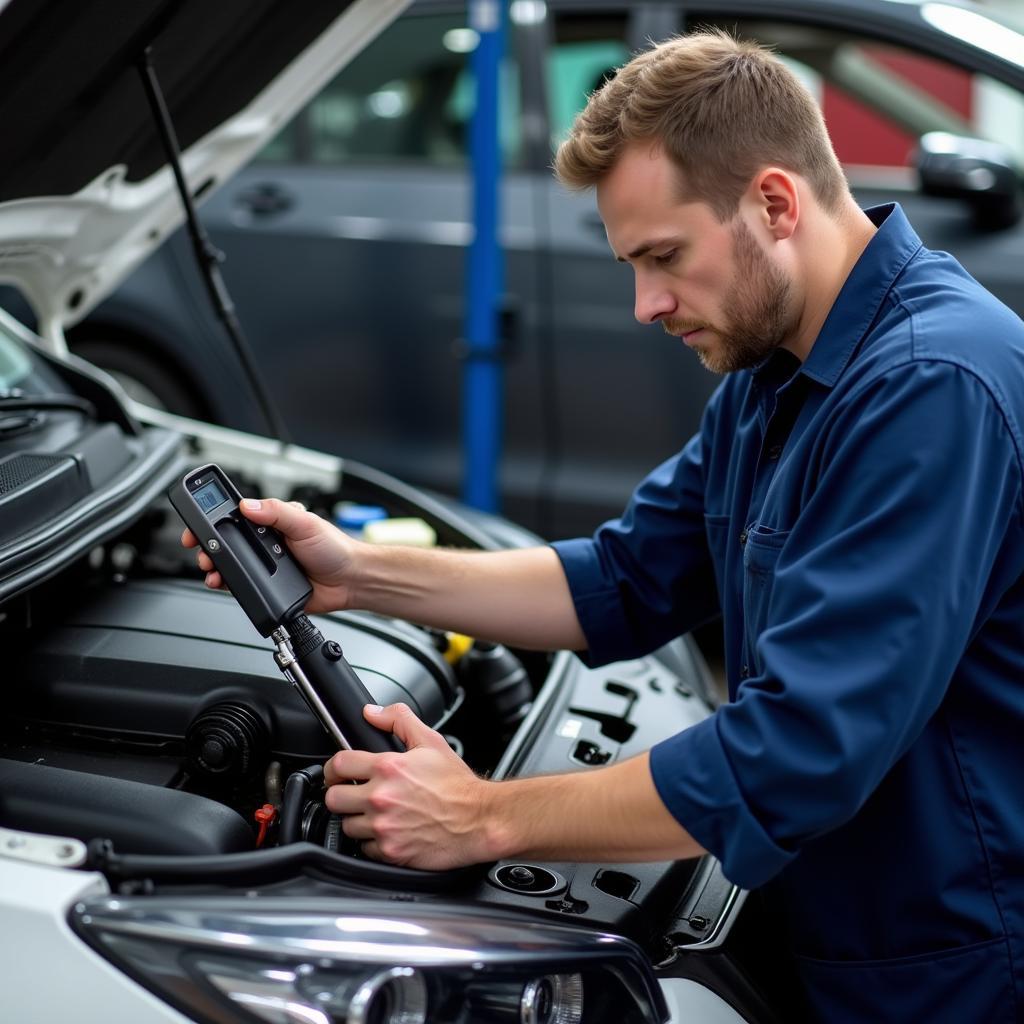Car Maintenance 101 is essential for every car owner. Whether you’re a seasoned driver or just starting out, understanding the basics of car care can save you money, extend the life of your vehicle, and ensure your safety on the road. This guide provides a comprehensive overview of essential car maintenance tasks, tips, and tricks to keep your car running smoothly. Want to learn the basics? Check out this resource on basic car maintenance 101.
Why is Regular Car Maintenance Important?
Regular car maintenance isn’t just about keeping your car looking good; it’s about ensuring its reliability, performance, and safety. Neglecting routine maintenance can lead to costly repairs down the line, decreased fuel efficiency, and even dangerous driving conditions.
- Safety: Regular brake checks, tire rotations, and fluid top-offs are crucial for safe driving.
- Reliability: A well-maintained car is less likely to break down unexpectedly, leaving you stranded.
- Resale Value: A car with a documented maintenance history will command a higher resale price.
- Cost Savings: Addressing small issues early on can prevent them from developing into major, expensive problems.
Just after purchasing my first car, I learned the importance of car maintenance the hard way. Ignoring a strange noise coming from the engine resulted in a hefty repair bill a few weeks later. Lesson learned!
 Checking Engine Oil Level
Checking Engine Oil Level
Essential Car Maintenance Tasks
Understanding Your Car’s Maintenance Schedule
Every car comes with a recommended maintenance schedule outlined in the owner’s manual. This schedule specifies the intervals for various maintenance tasks based on mileage or time. Familiarize yourself with this schedule and stick to it as closely as possible.
- Oil Changes: One of the most fundamental car maintenance tasks. Regular oil changes help lubricate the engine and prevent excessive wear and tear.
- Tire Rotations: Rotating your tires ensures even wear and extends their lifespan.
- Brake Inspections: Regularly inspect your brakes for wear and tear. Brake pads and rotors need to be replaced periodically.
- Fluid Checks: Check and top off essential fluids like coolant, brake fluid, power steering fluid, and windshield washer fluid.
 Rotating Car Tires for Even Wear
Rotating Car Tires for Even Wear
DIY Car Maintenance: What You Can Do at Home
Many basic car maintenance tasks can be performed at home with a few simple tools. Simple tasks like checking fluids, changing air filters, and replacing wiper blades can save you a trip to the mechanic. For more DIY tips, check out diy car maintenance reddit.
- Checking Tire Pressure: Use a tire pressure gauge to ensure your tires are inflated to the correct pressure.
- Changing Air Filters: Replacing your engine air filter and cabin air filter is a quick and easy way to improve performance and air quality.
- Replacing Wiper Blades: Worn-out wiper blades can impair visibility, especially in rainy conditions. Replacing them is a simple DIY task.
What are the easiest car brands to maintain? Find out by visiting least maintenance car brands.
When to Seek Professional Help
While some car maintenance tasks are suitable for DIYers, others require the expertise of a qualified mechanic. If you’re unsure about performing a particular task, it’s always best to err on the side of caution and seek professional help. You can find reputable mechanics near you by searching for car maintenance pasadena yelp.
- Complex Repairs: Engine repairs, transmission work, and other complex tasks should be left to the professionals.
- Diagnostic Trouble Codes (DTCs): If your car’s check engine light comes on, it’s essential to have a mechanic diagnose the problem using a diagnostic scanner.
“Regular maintenance is the key to a long and healthy life for your car,” says John Smith, a certified automotive technician with over 20 years of experience. “Don’t wait for something to break before you take action. Preventive maintenance is always the best approach.”
Conclusion
Car maintenance 101 is about empowering you to take control of your vehicle’s health. By understanding the basics and following a regular maintenance schedule, you can ensure your car runs smoothly, safely, and reliably for years to come. Need help? Contact us at AutoTipPro at +1 (641) 206-8880 or visit our office at 500 N St Mary’s St, San Antonio, TX 78205, United States.
 Mechanic Checking Car Engine with Diagnostic Tool
Mechanic Checking Car Engine with Diagnostic Tool
“A little bit of car maintenance can go a long way,” adds Jane Doe, another seasoned mechanic. “It’s an investment in your safety and your wallet.” Don’t underestimate the power of regular car maintenance.
FAQ
-
How often should I change my oil? Refer to your owner’s manual for the recommended oil change interval. It’s typically every 5,000-7,500 miles.
-
What are the signs of worn brakes? Squealing or grinding noises, a spongy brake pedal, and vibrations when braking are all signs of worn brakes.
-
How do I check my tire pressure? Use a tire pressure gauge to measure the pressure in each tire. The recommended pressure is usually listed on a sticker inside the driver’s side doorjamb.
-
What fluids should I check regularly? Check your engine oil, coolant, brake fluid, power steering fluid, and windshield washer fluid.
-
Why is tire rotation important? Tire rotation ensures even wear on all four tires, extending their lifespan and improving handling.
-
How can I improve my car’s fuel efficiency? Regular maintenance, proper tire inflation, and avoiding aggressive driving can all improve fuel efficiency.
-
What should I do if my check engine light comes on? Have a qualified mechanic diagnose the problem using a diagnostic scanner.





Leave a Reply